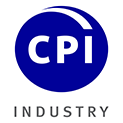‘LET THE SERVICE GAMES BEGIN’
The global climate is changing, and our expectations for comfort are evolving. Efficient and sustainable heating, ventilation, air conditioning and refrigeration systems are no longer a luxury but a necessity. In the dynamic landscape of this industry, the key to driving product innovation, while meeting the growing demand of HVACR solutions, lies in empowering a skilled workforce. Companies that prioritise their employees' professional development through training not only achieve higher business results but also ensure exceptional service support to the customers. This underscores the pivotal role of skilled employees in ensuring the long-term success of the HVACR industry.

General Manager Daikin Middle East & Africa
Nowhere is this more crucial than in the HVACR sector, as 60% of electricity consumption in the building is from these equipment and their operations. Therefore, precision in the production, installation and maintenance of air conditioning units, heaters, and ventilation and refrigeration systems is paramount. Without proficient staff and technicians, critical concerns, such as sustainability, efficiency and public health are at risk of being neglected, posing substantial threats to customers and service providers alike.
The challenge of bridging the gap: Technology and after- sales service
To overcome environmental impact and challenges, products in the field of air conditioning and refrigeration are constantly evolving through technological advancements. These advancements include
new refrigerants, inverterisation, digitalisation and advanced compressor technologies, like magnetic-bearing compressors. Computational capabilities are embedded in air conditioning products to provide comfort to customers while remaining efficient. Today, even the smallest products, from residential air conditioners to District Cooling technologies, are equipped with PCBs to operate and drive the product to meet customer demands.
While the Middle East and Africa (MEA) region is adopting these technological changes faster, after- sales service remains a significant challenge. Developing regions and countries often face a scarcity of skilled resources to provide good quality service to customers. With rapid technological advancement, it becomes increasingly difficult to keep the HVACR workforce updated with the latest technology.
Training and development
It is important to understand these challenges and the importance of delivering quality, safety and service excellence to customers. It is important to take a step forward by prioritising the training and development of the next generation of technicians, installers and after- sales service personnel. Well-meaning initiatives are taking place in the region, such as investing in state- of-the-art training and development centres to train the direct workforce and the indirect workforce, such as installers, contractors, dealers and service providers. The aim is to provide comprehensive theoretical and practical training exercises in system installation, troubleshooting, maintenance and energy efficiency. Further, to enhance the quality of workmanship as field service technicians, it is important to recognise that technicians need motivation to excel, not just information and training content. To foster better engagement in learning, an idea worth considering is to foster a competitive spirit. For instance, Daikin has organised the Service Games to bring competitiveness among service technicians and motivate them to learn more and excel in their area of expertise. The initiative cultivates a culture of excellence among technicians and engineers through competitive events that challenge participants in theoretical knowledge as well as practical skills. Launched for the first time in the Middle East and Africa in 2023, the Games not only celebrate technical expertise but also elevate the company’s service standards globally. The broad aim of workforce training goes beyond simply enhancing technical skills and service quality. It plays a pivotal role in addressing environmental and sustainability challenges by fostering a workforce equipped to deliver innovative, sustainable solutions in the HVACR sector.
This investment in continuous learning and development not only secures a competitive edge but also empowers local workforces across the Middle East and Africa. Such initiatives create a ripple effect, fostering economic growth, community development and career advancement opportunities, while ensuring superior service for customers.

